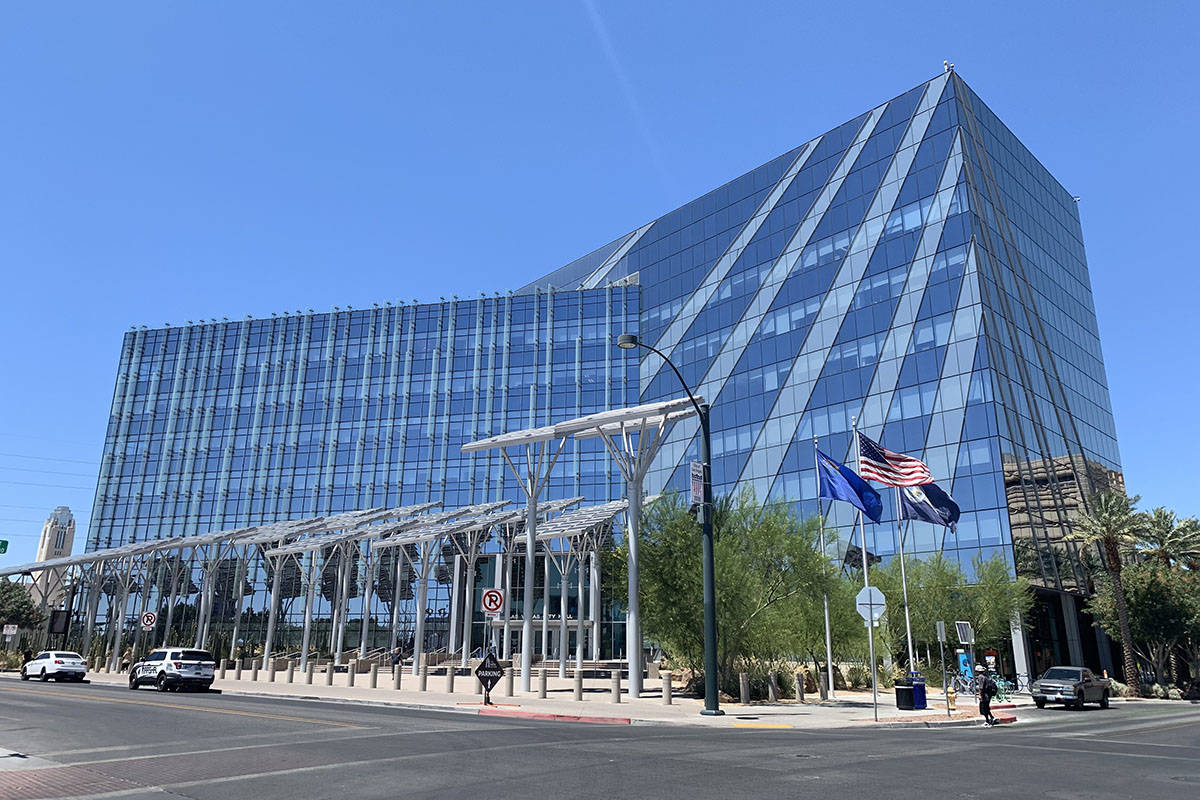Las Vegas City Council passes pared-down $572M balanced budget
Las Vegas city officials will submit a $572 million general fund budget to the state June 1, balanced in large part by pared-back personnel spending and use of a special fund to fill a remaining shortfall.
With tax revenue, principally sales tax, down 20 percent and projected to perform worse than anytime in the past eight years, city officials were forced to get creative while taking multiple cracks at adopting a budget amid an uncertain public health crisis.
“Effectively it was kind of like three budgets,” Chief Financial Officer Gary Ameling said. “We’d put together a budget, you threw it away and started again. You’d put together another budget, revenues drop even more, you threw it away and started again.”
The city’s pre-coronavirus budget in January projected $354.3 million in tax revenue, which dwindled to $237 million in the final spending plan unanimously approved by the City Council on Wednesday.
That source of revenue routinely comprises more than half of the city’s general fund revenue. It was only 43 percent this year.
“I’m not making a joke out of this,” City Manager Scott Adams said. “But you know nobody got a chance to have a haircut over the last two weeks, but I will guarantee you our departments all took a haircut. This was very serious business.”
In total, the budget is nearly $100 million less than prior years.
According to a presentation by Ameling, who said this budget was unlike any he had worked on over the past 31 years, the city reduced overtime and shifts of hourly workers to save $13.1 million, froze positions, transferred positions to other funds and slashed by $15 million its contribution to the Las Vegas Metropolitan Police Department.
It also pulled $32.6 million from a fiscal stabilization fund, which is a combination of money from the general fund, capital improvement plan and other funds, Ameling said.
The city plugged a remaining shortfall of nearly $20 million with reserve funds, according to the presentation.
While city officials hoped they could bolster spending on council priorities this year — namely public safety, health care and diversifying the economy — they could only cut less in those areas than elsewhere, Ameling said.
And he warned that impacts from state-at-home orders and the city’s response to the pandemic would be felt through at least fiscal year 2022.
A five-year forecast showed the city facing a $44 million deficit by fiscal year 2026, meaning that either revenues must increase or employees will be vulnerable to layoffs as officials seek to slash salary and benefits.
Ameling credited fast action, federal government assistance and cooperation from city bargaining units with helping the city balance the budget during the forthcoming fiscal year that begins July 1.
The city is also in the process of downsizing its roster of private legal firms fighting litigation related to the defunct Badlands golf course in order to save money, with plans to perform much of the work in house.
Contact Shea Johnson at sjohnson@reviewjournal.com or 702-383-0272. Follow @Shea_LVRJ on Twitter.


















